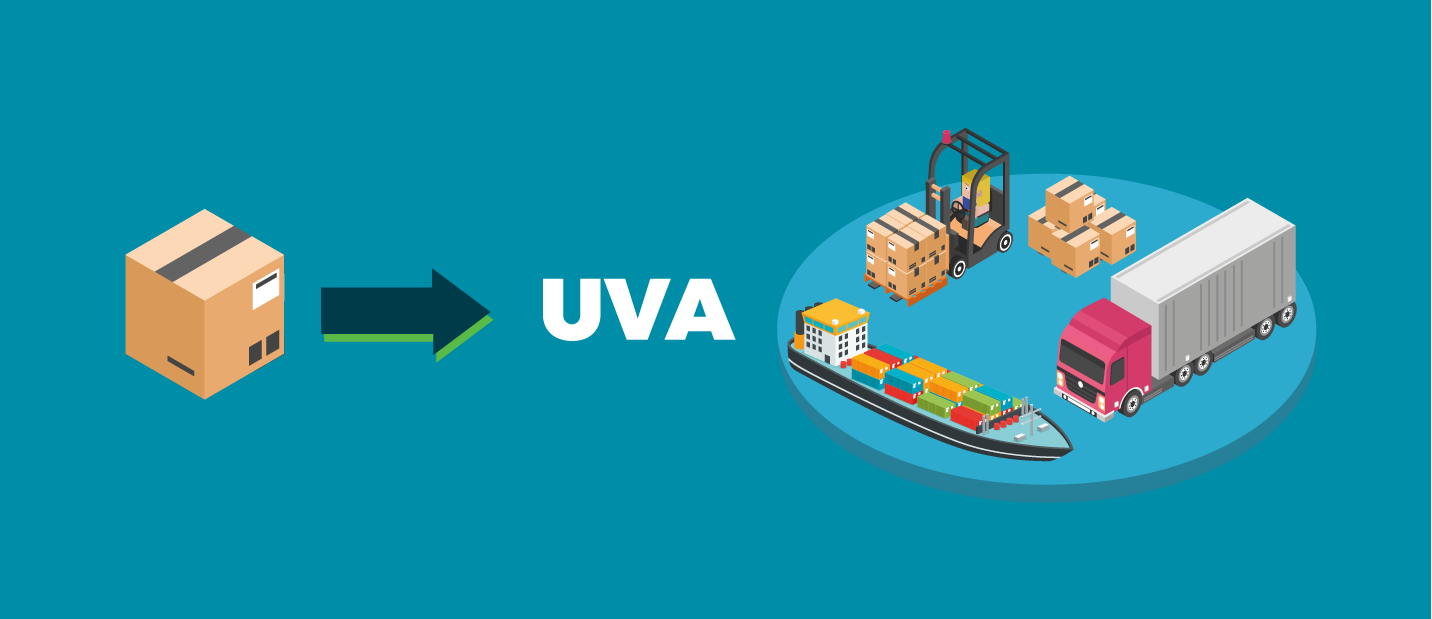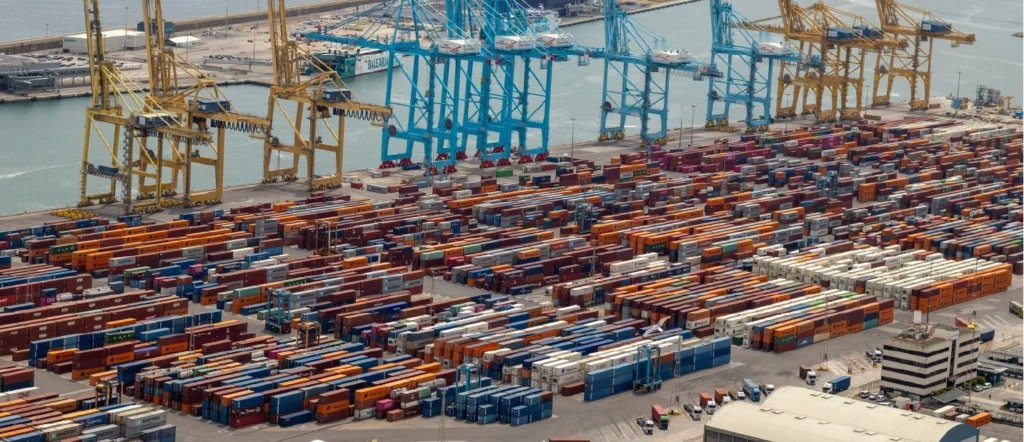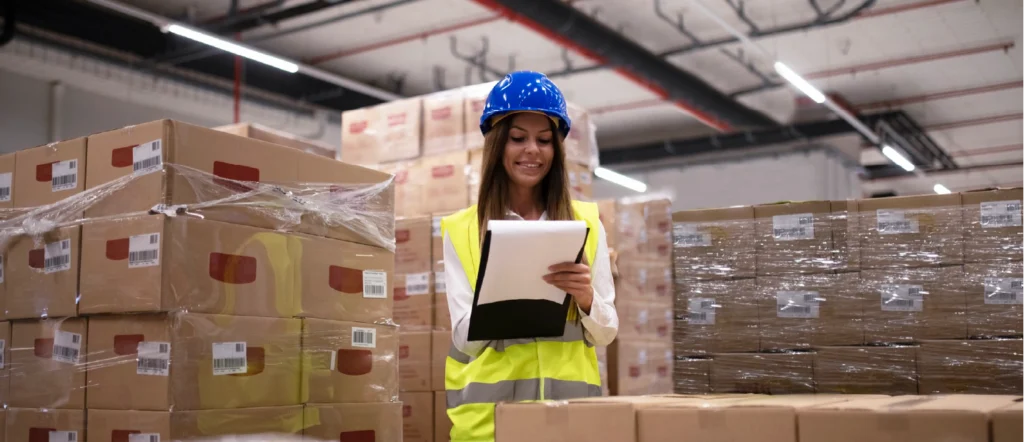¿Qué es una UIA o Unidad de Inspección Autorizada?
Una Unidad de Inspección Autorizada es una entidad jurídica, sea persona o empresa, competente y avalada por la Entidad Mexicana de Acreditación (al igual que aceptada por la Secretaría de Economía) para revisar productos de importación y proteger a los consumidores en cumplimiento de la ley.
¿Cuál es su labor?
La Unidad de Inspección Autorizada se encarga de evaluar tu mercancía importada para luego dar fe de que cumple todas las normativas oficiales del país, y que por ende, son productos seguros para el consumo de los ciudadanos.
La unidad de verificación se traslada al sitio en donde se encuentra retenida la mercancía apenas llega al país para realizar el procedimiento pertinente, emitiendo un Dictamen de Cumplimiento de ser todo satisfactorio y demostrando así que el contenido de los productos cumple con lo que exige el gobierno mexicano y se corresponde con las normas de etiquetado.

Beneficios de contar con una Unidad de Inspección Autorizada competente
Al tratarse de agilizar la logística, la unidad de verificación garantiza que los productos recién importados puedan distribuirse libremente en relación con las normas de etiquetado.
Al importar, es común que las etiquetas estén en otro idioma o que no cumplan con las Normas Oficiales Mexicanas.
Por eso, la Unidad de Inspección permite movilizar la mercancía legalmente hacia sus tiendas de distribución cuanto antes.
De este modo, para que los trámites de despacho aduanero sean ágiles, y consuman la menor cantidad de recursos, es importante contar con el respaldo de una Unidad de Inspección Autorizada competente y con experiencia.

¿Cómo Actúa la UIA?
El procedimiento para la verificación de tu mercancía por la UIA, en rasgos generales, es el siguiente:
- Con antelación, se debe hacer la Solicitud de Servicios de Inspección a la oficina de aduanas donde se encuentre tu mercancía. Obtendrás dicho documento desde el Organismo de Evaluación de la Conformidad, y con ello podrás tener luz verde para movilizar tu mercancía al lugar en donde normalmente la resguardas.
- Recuerda que dentro de esta Solicitud de Servicios de Inspección se deben encontrar datos como: identidad de la responsable de importación, características de la o las mercancías recibidas al país, el cumplimiento del etiquetado adecuado según las normas, así como la dirección del sitio en donde se trasladarán los productos para realizar allí la verificación posterior.
- Tras esto, es cuando la Unidad de Verificación Inspección escogida llegará al lugar de almacenamiento para realizar su trabajo. Dependiendo de la naturaleza de la mercancía, y según su criterio, la UIA hará la validación en el mismo sitio o tomará una muestra del producto para evaluarlo posteriormente en otra estancia mejor capacitada (laboratorios, etc.).
- Es importante tener en cuenta que el tiempo y la gestión de dicha verificación puede variar según la mercancía. A grandes rasgos, se realizan evaluaciones de tipo: ocular, comprobando mediciones, recolectando muestras, evaluando desde un laboratorio o a través de una inspección a conciencia de los documentos relacionados con los productos.
- Si todo se encuentra en regla tomando en cuenta las indicaciones de la NOM, entonces la UIA emitirá un Dictamen de Cumplimiento. Con este documento, quedará avalado que tu mercancía puede comerciarse sin generarle ningún riesgo a nadie.
Respecto al etiquetado, debes recordar que dispones de hasta 30 días para elaborarlo de la manera correcta, siguiendo los lineamientos de la NOM.
Otras alternativas para etiquetar de manera oficial
Las dos formas adicionales para realizar este mismo procedimiento con toda la legalidad posible son el etiquetado directo en la aduana, o a través de PROSEC.
Desde aduana
Es posible que se realice el etiquetado del producto directamente en aduana, pero para ello requieres de un proveedor capacitado para ello. Esta modalidad está casi en desuso por lo difícil que es el realizarla, aunque todavía existen casos vigentes en el país.
Etiquetado con PROSEC
Vía los Programas de Promoción Sectorial, también se puede consignar esta diligencia. Primero debes hacer una solicitud de registro al Servicio de Administración Tributaria (SAT) para luego ir a la Ventanilla Digital de Comercio Exterior y consignar entregando los documentos que te indicamos a continuación:
- Solicitud de autorización o ampliación de programas PROSEC: específicamente, gestionar el formato SE-03-023 y 24.
- Acta Constitutiva y Poder Notarial (original y copia certificada).
- Cédula del RFC (copia).
- Documento avalando la propiedad del inmueble en donde se realiza la producción (original, copia y fotos).
- Una carta de Fe de hechos realizada por el federatario público. De esta manera, se comprueba legalmente que tú como empresa posees el espacio legal para llevar a cabo las actividades de tu empresa (producción o almacenamiento de importación).
Tras esto, se te concederá la autorización en un plazo de 15 días hábiles, además de un folio de 24 dígitos.

Importancia de cumplir las normas oficiales mexicanas
NOM son las siglas de las Normas Oficiales Mexicanas y cada producto y servicio dispuesto al público se encuentra regulado por esta normativa.
En concreto, hablamos de un compendio de directrices, regulaciones, indicaciones y leyes orientadas a estos recursos, con el propósito de determinar si se encuentran en regla, o mejor dicho, aptos para ser consumidos o experimentados por clientes.
Incluso, la NOM establece una terminología específica para determinadas áreas, al mismo tiempo que un etiquetado estándar en productos dentro del país, y una simbología junto a determinado método de embalaje para considerar un producto legal en toda la palabra.
Al cumplir estas normativas, evitarás complicaciones y multas y asegurarás una distribución oportuna de tus productos.
Normativa vigente a partir de 2020 sobre las unidades de verificación
En octubre de 2020 la Secretaría de Economía publicó en el Diario Oficial de la Federación (DOF) las reglas y criterios de carácter general en materia de Comercio Exterior (http://www.dof.gob.mx/nota_detalle.php?codigo=5601629&fecha=01/10/2020)
Estas nuevas reglas implican que ya no se puede movilizar la mercancía bajo la «carta de no comercialización» que se usaba antes para mover muchos de los productos importados.
Ahora, sin excepción, las empresas deberán cumplir con la NOM de información comercial.

¿Cómo cumplir con las Normas de Información Comercial?
Principalmente, la propia Secretaría de Economía contiene en su página web toda la normativa, así como la información pertinente para poder llevar a cabo la venta de tus productos dentro del país de la forma más sencilla posible.
Hacerte con servicios avalados por esta entidad es fundamental, especialmente en la parte de verificación donde la UVA juega el papel principal.
Una vez te ajustes a las regulaciones regionales tal cual como debe ser, existirá la posibilidad de poner en marcha cualquier proceso sin retrasos ocasionados por inconformidades legales.
Ahora lo sabes, las unidades de verificación competentes evitan multas, retrasos innecesarios y ahorran tiempo, recursos y dinero.





